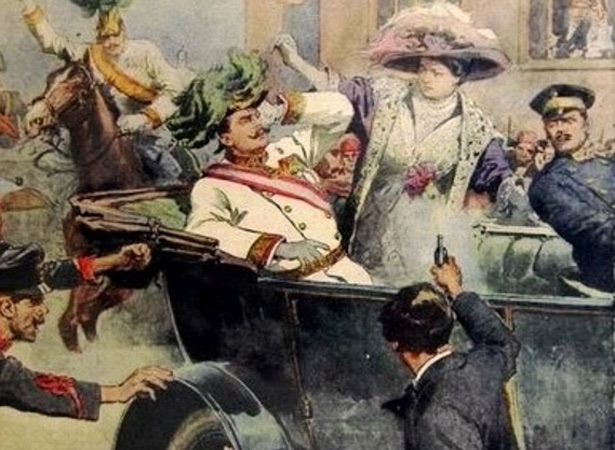| Causes of World War I |
| Introduction |
| The Rise of Nationalism |
| Imperialism and Militarism |
| Alliances and Treaties |
| The Assassination of the Archduke |
 |
The assassination of Archduke Franz Ferdinand of Austria-Hungary on June 28, 1914, in Sarajevo, Bosnia, is widely regarded as the event that sparked World War 1. The assassination was carried out by a group of Serbian nationalists, and it set off a chain of events that led to the outbreak of war just one month later.
Franz Ferdinand was the heir to the Austro-Hungarian throne and was in Sarajevo on a state visit. He and his wife, Sophie, were traveling in an open car when they were shot and killed by Gavrilo Princip, a member of the Black Hand, a secret society of Serbian nationalists.
The assassination was the result of a long-standing conflict between Serbia and Austria-Hungary. Serbia had recently become an independent state and was seeking to expand its territory, while Austria-Hungary saw Serbia as a threat to its own power and influence in the region.
The assassination set off a chain of events that quickly escalated into a major conflict. Austria-Hungary issued an ultimatum to Serbia, demanding that Serbia take action against the nationalist group responsible for the assassination. Serbia rejected the ultimatum, and Austria-Hungary declared war on Serbia on July 28, 1914.
The conflict quickly spread throughout Europe, with other countries taking sides and joining the war effort. Germany supported Austria-Hungary, while France and Russia supported Serbia. Great Britain eventually joined the war on the side of the Allies, along with Italy and the United States.
The assassination of Franz Ferdinand and the subsequent outbreak of war had a profound impact on the world. The war lasted for four years and led to the deaths of millions of people, both soldiers and civilians. It had a significant economic impact, with many countries experiencing inflation, debt, and recession. It also led to significant political changes, including the collapse of several empires and the establishment of new nation-states.